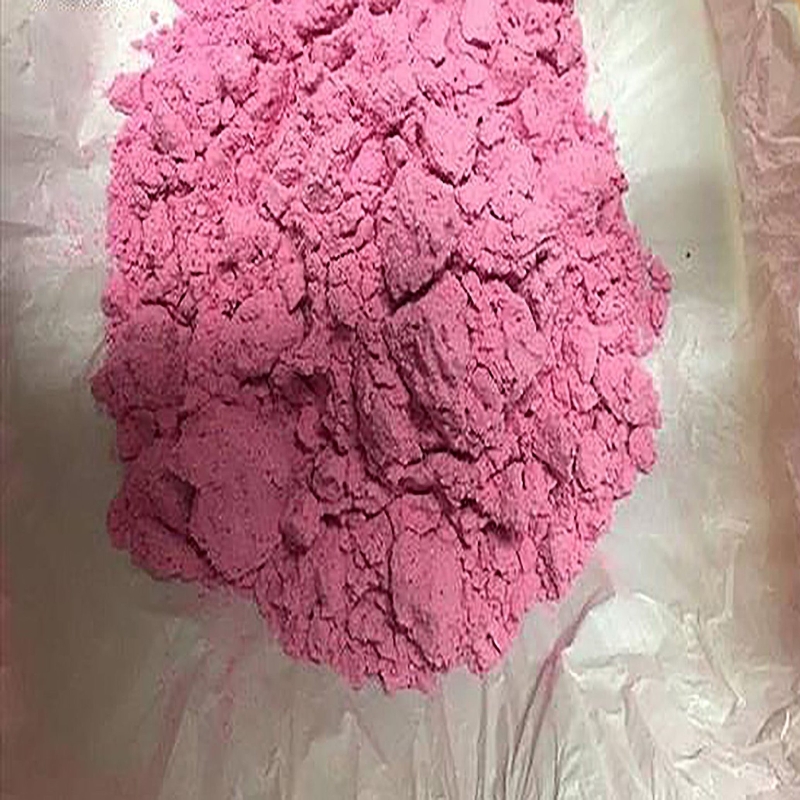-
Categories
-
Pharmaceutical Intermediates
-
Active Pharmaceutical Ingredients
-
Food Additives
- Industrial Coatings
- Agrochemicals
- Dyes and Pigments
- Surfactant
- Flavors and Fragrances
- Chemical Reagents
- Catalyst and Auxiliary
- Natural Products
- Inorganic Chemistry
-
Organic Chemistry
-
Biochemical Engineering
- Analytical Chemistry
-
Cosmetic Ingredient
- Water Treatment Chemical
-
Pharmaceutical Intermediates
Promotion
ECHEMI Mall
Wholesale
Weekly Price
Exhibition
News
-
Trade Service
Korean plastic surgery has happened again!
According to South Korea’s MBC TV station on October 9, citing a police report, Robell, the granddaughter of the late textile tycoon Fort Shilong costume founder Luo Dingbang, fell into a coma while undergoing breast augmentation and liposuction at the Seoul Plastic Surgery Hospital and was rushed away.
He died after treatment, which is a serious medical negligence
.
The difference from the previous medical accidents caused by "ghost surgery" is that the main cause of this accident was the adverse reaction of the drug propofol used as a sedative during the operation.
However, there was no anesthesiologist at the scene
.
So the question is, what kind of medicine is propofol and why can only doctors in anesthesiology use it?
Propofol is a fast and short-acting intravenous anesthetic.
It exerts anesthesia effects by enhancing central inhibitory neurotransmission (GABA receptors) and inhibiting central excitatory nerve (NMDA receptors) transmission.
It is widely used in clinical practice.
It is used for the induction and maintenance of anesthesia in various operations, as well as the sedation of critically ill patients
.
Due to its rapid onset, precise effect, short duration of action, and rapid awakening, it can reduce the application of opioid analgesics.
The milky white liquid texture of propofol is often referred to as "milk" by anesthesiologists
.
It is precisely because of the above advantages and the fact that the use of propofol is not complicated.
More and more plastic surgeons believe that the use of propofol is safe, and they don’t even know the contraindications of the use of this type of drug, so they are sloppy.
Propofol is applied locally, which has caused a significant increase in accidents
.
Domestic and foreign countries are calling for the regulation of the use of propofol
.
The instructions also clearly stipulate that propofol “can only be used in hospitals or outpatient clinics with suitable equipment by doctors trained in anesthesia or in intensive care units
What are the dangers of the seemingly "docile" use of propofol?
First: Propofol can strongly inhibit breathing and even cause apnea
.
The clinical application of propofol can easily cause respiratory depression in patients.
Even an induced dose of propofol can also cause patients to slow down their respiratory rate and tidal volume, and even cause apnea
.
The famous king Michael Jackson, due to insomnia, asked his private doctor Morrie to inject 25mg of propofol for him
.
Morrie said that he accompanied Jackson for about 10 minutes after he fell asleep with propofol injection, and then left to go to the bathroom, leaving for no more than 2 minutes.
Second: While propofol provides sedation, it may also cause severe fluctuations in the circulatory system
.
Propofol has the effect of relaxing blood vessels and inhibiting the heart, and can cause adverse reactions such as lower blood pressure and arrhythmia
.
For elderly and frail patients, blood vessel regulation is reduced, circulatory fluctuations increase, bradycardia, blood pressure drop will be very sharp, and there are even extreme cases where propofol causes circulatory fluctuations to be severe, and then a case of cardiac arrest.
.
Third: Propofol may be allergic and may also induce convulsions
.
Propofol, as an anesthesia-inducing drug, has been reported to cause allergic reactions
.
It usually manifests as large red plaques or papules on the front of the chest, which occur several minutes after propofol intravenous induction
Very few patients may experience anaphylactic shock, manifested as chest tightness, dyspnea, urticaria, and decreased blood pressure.
In more severe cases, laryngeal edema and bronchospasm may occur, which seriously endangers the life of the patient
.
We can observe in the application of propofol in painless gastroscopy that even normal patients will experience mild excitement after medication, gibberish or involuntary limb twitching
.
For patients with epilepsy, there is the possibility of inducing convulsions, which is also detailed in the precautions of the instructions
Why can doctors trained in anesthesiology use propofol?
The biggest harm of propofol is respiratory depression, which is mainly manifested in a rapid bolus of the drug or the patient's condition is poor, which will cause a short breathing stop
.
If the symptomatic treatment is not detected in time, it will cause serious damage to the patient's brain.
Anesthesiologists have inherent advantages for the establishment of emergency airways, circulation management , and the use of vasoactive drugs
.
Many non-anaesthesiologists judge whether a patient has respiratory depression, mainly relying on parameters such as blood oxygen saturation, but in long-term clinical practice, anesthesiologists not only pay attention to the blood oxygen index, but also habitually look at the patient's chest fluctuations and other symptoms and signs , To be able to detect and intervene early
.
If drug allergy occurs, whether it is allergy treatment or emergency airway establishment in allergy rescue, it is also the strength of the anesthesiologist
.
Without the supervision and management of the anesthesiologist, the risk of propofol use is greatly increased
.
Therefore, we call again that both medical institutions and doctors should manage and use propofol in strict accordance with national regulations and drug instructions, and hope that such human tragedies will never happen again
Korean plastic surgery has happened again!
According to South Korea’s MBC TV station on October 9, citing a police report, Robell, the granddaughter of the late textile tycoon Fort Shilong costume founder Luo Dingbang, fell into a coma while undergoing breast augmentation and liposuction at the Seoul Plastic Surgery Hospital and was rushed away.
He died after treatment, which is a serious medical negligence
.
The difference from the previous medical accidents caused by "ghost surgery" is that the main cause of this accident was the adverse reaction of the drug propofol used as a sedative during the operation.
However, there was no anesthesiologist at the scene
.
So the question is, what kind of medicine is propofol and why can only doctors in anesthesiology use it?
So the question is, what kind of medicine is propofol and why can only doctors in anesthesiology use it?Propofol is a fast and short-acting intravenous anesthetic.
It exerts anesthesia effects by enhancing central inhibitory neurotransmission (GABA receptors) and inhibiting central excitatory nerve (NMDA receptors) transmission.
It is widely used in clinical practice.
It is used for the induction and maintenance of anesthesia in various operations, as well as the sedation of critically ill patients
.
Due to its rapid onset, precise effect, short duration of action, and rapid awakening, it can reduce the application of opioid analgesics.
The milky white liquid texture of propofol is often referred to as "milk" by anesthesiologists
.
It is precisely because of the above advantages and the fact that the use of propofol is not complicated.
More and more plastic surgeons believe that the use of propofol is safe, and they don’t even know the contraindications of the use of this type of drug, so they are sloppy.
Propofol is applied locally, which has caused a significant increase in accidents
.
Domestic and foreign countries are calling for the regulation of the use of propofol
.
The instructions also clearly stipulate that propofol “can only be used in hospitals or outpatient clinics with suitable equipment by doctors trained in anesthesia or in intensive care units
What are the dangers of the seemingly "docile" use of propofol?
What are the dangers of the seemingly "docile" use of propofol? What are the dangers of the seemingly "docile" use of propofol?First: Propofol can strongly inhibit breathing and even cause apnea
.
.
First: Propofol can strongly inhibit breathing and even cause apnea
The famous king Michael Jackson, due to insomnia, asked his private doctor Morrie to inject 25mg of propofol for him
.
Morrie said that he accompanied Jackson for about 10 minutes after he fell asleep with propofol injection, and then left to go to the bathroom, leaving for no more than 2 minutes.
Second: While propofol provides sedation, it may also cause severe fluctuations in the circulatory system
.
.
Second: While propofol provides sedation, it may also cause severe fluctuations in the circulatory system
.
Propofol has the effect of relaxing blood vessels and inhibiting the heart, and can cause adverse reactions such as lower blood pressure and arrhythmia
.
For elderly and frail patients, blood vessel regulation is reduced, circulatory fluctuations increase, bradycardia, blood pressure drop will be very sharp, and there are even extreme cases where propofol causes circulatory fluctuations to be severe, and then a case of cardiac arrest.
.
Third: Propofol may be allergic and may also induce convulsions
.
.
Third: Propofol may be allergic and may also induce convulsions
.
Propofol, as an anesthesia-inducing drug, has been reported to cause allergic reactions
.
It usually manifests as large red plaques or papules on the front of the chest, which occur several minutes after propofol intravenous induction
.
Very few patients may experience anaphylactic shock, manifested as chest tightness, dyspnea, urticaria, and decreased blood pressure.
In more severe cases, laryngeal edema and bronchospasm may occur, which seriously endangers the life of the patient
.
We can observe in the application of propofol in painless gastroscopy that even normal patients will experience mild excitement after medication, gibberish or involuntary limb twitching
.
For patients with epilepsy, there is the possibility of inducing convulsions, which is also detailed in the precautions of the instructions
.
Why can doctors trained in anesthesiology use propofol?
Why can doctors trained in anesthesiology use propofol? Why can doctors trained in anesthesiology use propofol?The biggest harm of propofol is respiratory depression, which is mainly manifested in a rapid bolus of the drug or the patient's condition is poor, which will cause a short breathing stop
.
If the symptomatic treatment is not detected in time, it will cause serious damage to the patient's brain.
Anesthesiologists have inherent advantages for the establishment of emergency airways, circulation management , and the use of vasoactive drugs
.
Many non-anaesthesiologists judge whether a patient has respiratory depression, mainly relying on parameters such as blood oxygen saturation, but in long-term clinical practice, anesthesiologists not only pay attention to the blood oxygen index, but also habitually look at the patient's chest fluctuations and other symptoms and signs , To be able to detect and intervene early
.
If drug allergy occurs, whether it is allergy treatment or emergency airway establishment in allergy rescue, it is also the strength of the anesthesiologist
.
Without the supervision and management of the anesthesiologist, the risk of propofol use is greatly increased
.
Therefore, we call again that both medical institutions and doctors should manage and use propofol in strict accordance with national regulations and drug instructions, and hope that such human tragedies will never happen again
.







